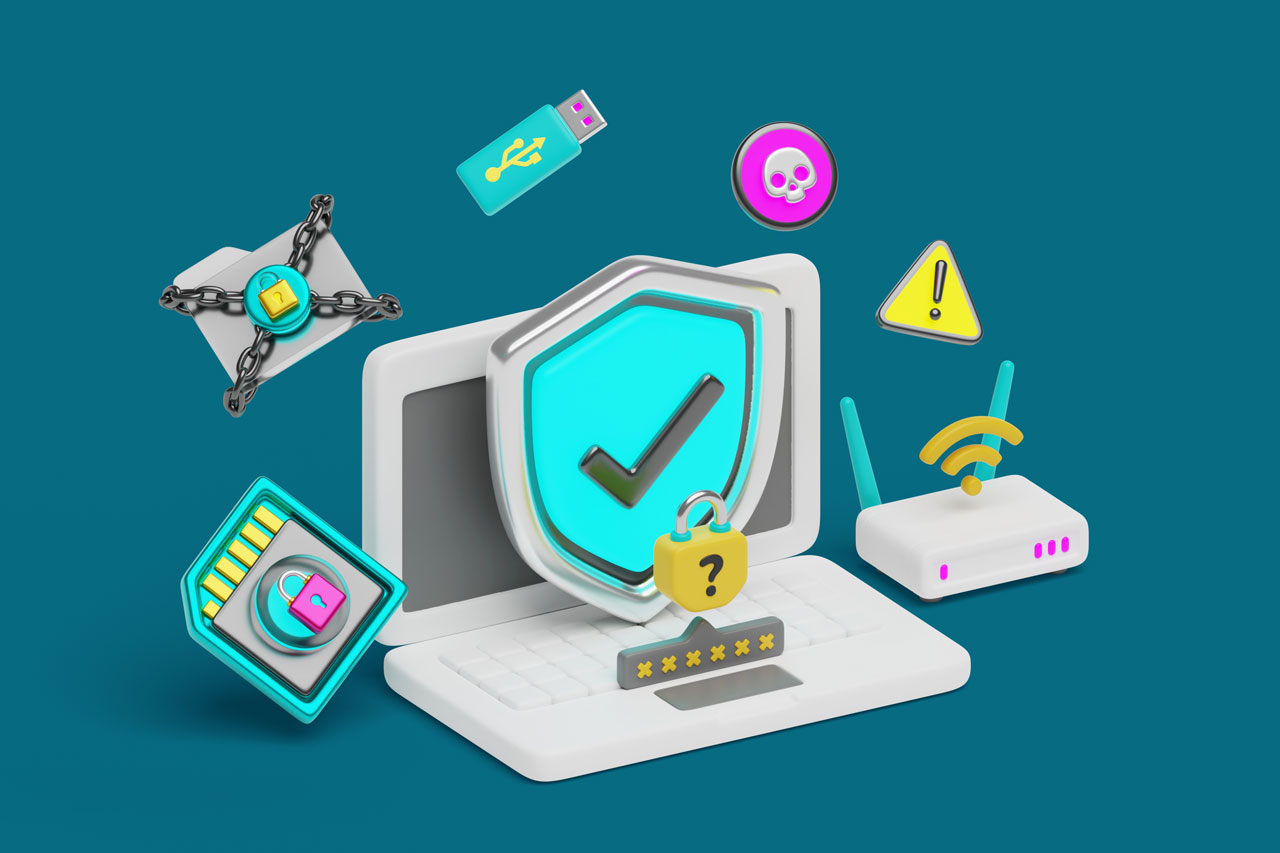Our modern internet-driven world has greatly increased growing concerns about data privacy and secure browsing. One of the technologies brought forward to address these matters is a proxy server. Both individuals and businesses make heavy use of proxy servers for enhancing internet security, protecting privacy, and network access control for personal as well as commercial use. But what is a proxy server, and how does it work?
What Is a Proxy Server?
A proxy server is used as a middle-man between the user and the internet. Using a proxy means that your requests to the web are sent through the proxy before they get to their destination which hides the real IP address. The website that you’re requesting, then sends its replies back through the proxy server to you. A proxy does so by sitting between your device and the internet, helping to hide your IP address, filter content, and increase privacy.
What is a common function of a proxy server? Well, proxy servers are used for several purposes, ranging from the search for anonymity online by people to companies trying to monitor usage within internet systems. There are different proxy servers used for different purposes, providing individual benefits and functionalities in accomplishing the user’s specific objectives.
How Does A Proxy Server Work?
When you use a proxy, your internet request would have to go through the proxy server to reach the website. Here is an overview of the process as far as the forwarding of the request is concerned:
- Request Forwarding: This refers to sending your request forwarded to the proxy server after writing in the URL of your favorite website in the browser.
- Request Processing: Your request is forwarded to that site by the proxy server as itself, though sometimes changing or masking the real IP address.
- Response Routing: The website sends back its response via the proxy server towards your device.
This process ensures that all your real IP address remains hidden and that websites you visit can only see the proxy server’s address.
Common Uses Of Proxy Servers
Proxies serve a great many functions to meet personal and organizational needs. Some of the common applications include:
- Anonymity: A proxy can hide one’s IP address, thus serving to provide a face of privacy when accessing a website.
- Security: An intermediary proxy server security serves to protect the device used by hiding malicious internet traffic, therefore reducing risks for data breaches and cyberattacks.
- Access Control and Filtering: Organizations can use proxies to restrict employee access to unwanted websites such as social networks and filter malicious ones.
- Restricted Access Bypassing: Proxies might allow bypassing geographical restrictions so that access is given to content which otherwise one would not be allowed to access in their location.
- Bandwidth Management and Caching: Proxies can store the copies of web pages that are accessed often on the network for bandwidth reduction, improving loading times and network efficiency.
Types Of Proxy Servers
There are multiple types of proxy servers; each is used for a different purpose. Here’s an overview of the most common ones:
- Anonymous Proxy Server: This type conceals the user’s IP but does not conceal the fact that they are using a proxy. It means privacy but still the address remains traceable for use.
- Transparent Proxy: Transparent proxies do not modify requests and do not hide the IP address of the user; therefore they are traceable easily. They are generally used when the users are not sensitive to privacy issues, like in schools and libraries.
- Distorting Proxy: The distorting proxy gives an imitated IP address to the destination website, through which the user performs apparently with anonymity but is accessible to the site for some reason.
- Reverse Proxy: Reverse proxies are those that represent web servers rather than users. A reverse proxy is commonly used to offer incoming traffic into a website that provides a layer of security and balancing loads.
- Residential Proxy: In the case of a residential proxy, a real residential IP is assigned to the user. Such residential proxy setups are often perceived to be more trusted and less detectable because they utilize real residential IP addresses.
- Public/Free Proxy: They are free and anyone can use them. Even though they are free, they might be limited in security, speed, and reliability.

Key Differences Between Proxy Servers
Proxy servers fall into varying categories based on the function, source, and level of anonymity. For a better feel for when to use each, here’s a comparison of some of the types of proxy servers:
- Anonymity-Based vs. Source-Based Proxies: Anonymity-based proxies, such as anonymous and distorting proxies, focus on hiding the user’s identity from the server, while source-based proxies, like reverse proxies, are concerned with controlling access to web servers.
- One proxy is to be used for HTTP, which refers to unencrypted web traffic, and the other HTTPS, which stands for encrypted data. One has to use an HTTPS proxy if they want to browse securely and encrypt the data between the user and the website for maximum privacy.
- Elite vs. Transparent Proxies: Elite proxies hide not just your IP address but the fact that you are even using a proxy, thus better for most extremely sensitive activities. The transparent proxies do not hide the user’s IP address and hence can easily be detected.
- Free vs. Paid Proxies: Free proxies are easily accessible and available; however, they do not offer good security, speed, or reliability. Paid proxies offer dedicated resources, faster connections, as well as enhanced privacy protections, thus being better for use that is frequent or sensitive.
While some may be used in combination to gain more sophisticated functionality, other proxy types are intended to be used independently. For instance, an elite proxy with a residential IP address will give you maximum anonymity and also have a lesser possibility of being flagged or blocked on most sites making it more suitable for secure browsing.
Advantages And Limitations Of Using A Proxy Server
All the different types of proxy servers come with advantages and limitations. Some of the most important ones worth considering are listed below:
- Advantages
- Enhanced Privacy: The proxies hide your IP address; hence, sites and advertisers cannot trace your activities easily.
- Increased Security: Proxies are gateways that reduce the potential of accessing any malicious sites. They help in reducing data breaches and leaks from their organizations.
- Content Management: Proxies filter out content for blocking particular websites or categories at businesses or institutions, thus providing better control over the internet.
- Bandwidth Savings and Improved Speed: Some proxies cache frequently accessed web pages, which reduces bandwidth usage and download time.
- Limitations
- Link Speed: Proxies are bound to be slower than servers, mainly free proxies and those that have been overused depending on the server.
- Less Privacy when Using Free Ones: Public proxies will not give good privacy as some of them retain your activity records.
- Interference with Being Blocked/Complaint: Some websites block proxy IPs or require further verification causing disturbance for access.
There are many advantages to using proxies, but such users should be aware of the following limitations, particularly in free or public proxies. You may take your proxy server as a VPN in some aspects, but it’s worth noting that they can’t fully encrypt your data like a VPN would.
Selecting The Appropriate Proxy For Your Requirements
What proxy is right depends on how you plan on using it. Here are some factors to consider:
- Privacy Requirements: Where anonymity and evading detection are the priority, then use an elite or anonymous proxy. A residential proxy can also guarantee higher trust and is very likely to evade detection by most websites.
- Security Requirements: If you have sensitive work that really needs encryption, then choose a proxy with this feature. An HTTPS proxy is also recommended as they ensures secure data transmission.
- Budget: The greatest strength of free proxies is that they are free. However, it may not offer appropriate levels of privacy or reliability. Paid proxies are considerably more secure, faster, and reliable.
- Performance: It all depends on the requirement for speed with which one looks at the performance of a proxy. Use only dedicated or premium proxies for speedy performance.
- The best proxy servers will increase the quality of your browsing while ensuring you maintain your desired level of privacy and security.
Conclusion
Proxy servers are a good tool not only for private use but also for organizational purposes: they increase privacy, security, and control over accessing the internet. Either providing a cover for a proxy behind which to mask your IP, perhaps trying to circumvent geo-blocking, or simply adding to online security, here’s everything you need to know about them and their functions in order to make the right choice.
The right choice of a good proxy kind, whether anonymous, residential, or a reverse one, can guarantee a secure, private, and personalized web experience. The proxies still present the perfect opportunity for anyone trying to take their online security and privacy to another level.



